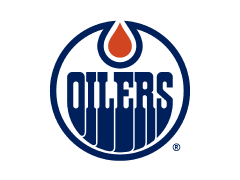This article has been written by Dr. Thomas Ungar, Associate Professor in Psychiatry at the University of Toronto and Movember affiliated researcher.
Like many kids growing up in Canada I often fantasized about being a hockey hero. During our daily road hockey game, between yelling ‘car’, I imagined myself, Orr, Howe, Lafleur, and Salming playing for Team Canada, facing off against an evil empire rival. Now as a 57-year-old old physician psychiatrist, I still (try) to play beer league hockey. I’ve had brushes with hockey greatness, but never my own. I played house league hockey at the storied St. Michael’s in Toronto where hall of famer and former Leafs’ coach Red Kelly sat behind our bench as his son was on the team. I was cut from Forest Hill high school hockey team try outs by my physical education teacher, the famous Stanley Cup winning coach Mike Keenan. He also taught us about the ‘birds and the bees’ in health class, including how to apply a prophylactic (now called condom) using a wooden prop as teaching aid. Today’s Toronto School Board would have a conniption. I take secret pleasure in the memory every time I hear him referred to by his nickname, “Iron” Mike.
If I ever had the chance to live out my childhood hockey fantasy, I’d take it. As great as this would be, I’d be scared, anxious, and worried.
That’s the nature of anxiety. It’s similar to what I feel and am observing amongst others during the COVID-19 pandemic. Like most of us, I’m worried about the well-being of my family, my colleagues, and my own as I go to work at the hospital almost every day.
Here’s what I know about fear, anxiety and worry as a psychiatrist. The existential threat to our well-being is real. The challenge is keeping the worry and our actions to it proportional and balanced to the threat. Fear, Worry, and Anxiety are normal and expected survival instincts that trigger the fight/flight /fright reaction and experience in our bodies, thoughts and emotions
Here’s how I’d cope with my welcome fantasy hockey anxiety in hopes the analogy provides a few lessons and strategies to help us all with our natural, normal COVID-19 anxiety:
Fight - to face off against the rival team and enemy I’d psych myself up to fight. I’d give it my all and skate hard. I’d focus on my position, what I could control, pass early and often, heed comments from the coach to pace myself, and hope for a lucky bounce. Garbage goals are my best hope. I’d take immense pride and meaning by wearing the red and white, and probably tear up during the anthem.
Now my hospital team colors are different, but as a health care worker I take pride in finding meaning and purpose in what my colleagues and other essential workers and service providers are doing to serve patients, to keep the lights on, and food at my table.
In this pandemic, let’s take pride and find meaning in our Canadian fight for health, in whatever way each of us can within our smaller worlds. Adapt and make necessary changes to what you can. Be creative. You’re stronger than you think. Wash your hands, physically distance, and stay home.
Flight - nobody wants a puck in the face. I’ll do my best to get out of the way. I’ll bob and weave, wear a visor or cage. If Slava Fetisov is barreling towards me I’ll duck or change direction, or try a textbook Savardian spin-o-Rama, no shame in that. I’ll show up despite the risk, just play as safely as possible. For COVID-19, anxiety tells you to try to stay out of its way to protect yourself. Wash your hands, physically distance, and stay home. Get out of the way and try to protect your teammates.
Fright - I’m going to be scared shitless. I’ll get to the rink 2 hours early as I expect to have to get dressed and undressed several times to repeatedly run to the washroom. I’m expecting to have heart pounding, breathing quickly, muscles tense, and probably sweating before the warm-up. I’ll remind myself to identify and accept nerves as unpleasant but expected. I’ll accept the pre-game jitters and remind and forgive myself for predicting a less than perfect game. I know I’ll be nervous, but I don’t plan to call for the team psychologist or mistakenly think I’ve suddenly developed a disorder.
COVID-19 pandemic anxiety is similar. It can include typical physical symptoms like racing heart, anxious breathing, butterflies and stomach upset, nausea and diarrhea, tense muscles, headaches, fatigue, sweating, tingling, reduce and interfere with sleep and appetite. It can distort our cognitive lens and judgment to over-focus on the negative and ignore or discount the positive and have us jumping to catastrophic conclusions. It can drive our emotions to be raw and anxious, irritable, short fused, down and tearful and feel overwhelmed.
We experience many challenges, including difficulty with sleep, and have to accept and acknowledge it’s an unpleasant unwanted part of what we are going through. We have little choice but to cope with the anxiety, normalize and accept it and the accommodations and imperfections that come with this time. This anxiety and worry is not mental illness. It’s how we cope and manage the anxiety that will be crucial.
Healthy human approaches to anxiety, fear and worry are to feel support by talking to friends and family. Additionally, reaching out for support, exercising at home or safely outside, and connecting socially while still physically distancing using virtual methods are other approaches that can be used.
For some, this is unrealistic, and some will develop or relapse with clinical anxiety, medical depression or a substance use disorder. This is where I and my colleagues come in. The good news is that there is help available and this can be treated to help most recover to their regular self and reduce suffering. If you find yourself persistently paralyzed, helpless or down, or feeling desperate or suicidal then it’s time to please reach out. Connect with telephone or on-line help for support, your family doctor or other provider. Mental health and emergency room services remain open 24/7.
In my fantasied Canadian hockey spotlight and during our all too real COVID-19 pandemic I’ve accepted things to be different. I need to adapt and change expectations. I will feel anxiety, both the good and the bad. I’ll fight as best I can, take flight when it’s smart to, and try to cope with, manage and live through the fright.
Here they come down the ice, pass from Gretzky, up the middle to Sittler, lovely saucer pass to the psychiatrist cutting in from the wing, he splits the defense, he shoots, he scores! Holy Sigmund Mackinaw
To speak with someone immediately, contact your local crisis support line on 1-833-456-4566.
If you're ever worried that someone's life is in immediate danger, call 911 or go directly to emergency services.











